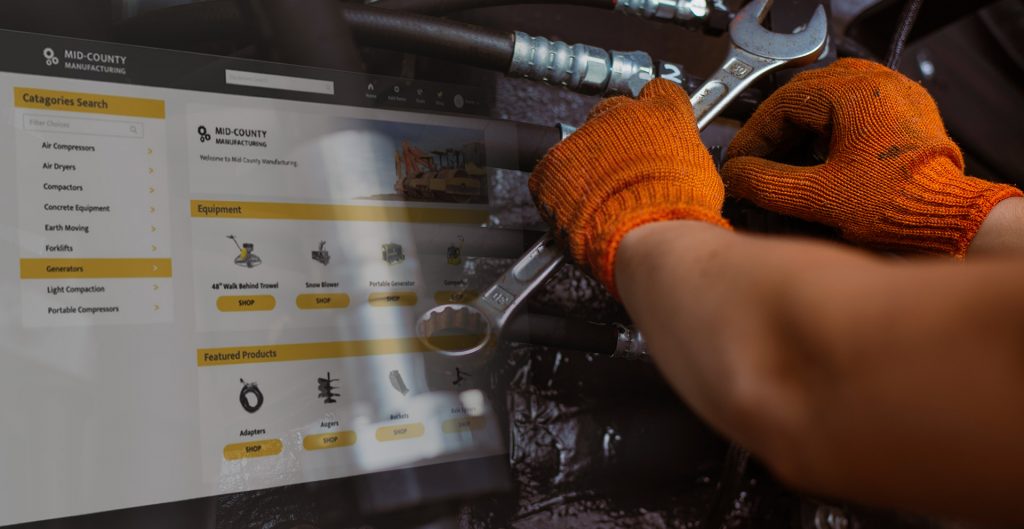Many rental companies are struggling to maximize their uptime, meet increased demand and surmount supply chain problems. They can leverage technology and data more to overcome these challenges and drive better decisions, according to leading rental experts appearing on the latest Ritchie Bros. Inside Edge discussion panel.
Fleet data analysis, real-time parts procurement, and machine learning and integration are just a few of the latest technology trends in the rental industry that will help equipment owners successfully navigate 2022, according to the Inside Edge webinar organized by Ritchie Bros. on March 24th.
Featuring expert insights from Guy Cremer, chief procurement officer of Boels Rental; Alexander Schuessler, founder and president of SmartEquip; and Phil Mause, managing director of Rouse Analytics, the lively discussion was designed to highlight how digital solutions and services can help rental companies of all sizes ensure maximum uptime and profitability from their equipment in the midst of the current global supply chain issues.
The perfect storm of a buoyant construction industry attempting to rebound from the pandemic while faced with long delays in receiving new equipment means that effective utilization is perhaps more critical now than ever. “2022 will be all about doing more with less,” posited Phil Mause. “Companies are struggling to get equipment, so they must maximize the uptime and value they’re getting out of their assets. Strategically deploying them to where they will get the most utilization and the highest return will be critically important.”
Fortunately, one other unique element in play can help – digital tools that were practically unthinkable 20 years ago are now providing invaluable guidance and solutions to help fleet owners optimize operations.
With those supply chain problems in mind, for instance, the decision regarding the best time to dispose of an asset has become increasingly significant of late. Collecting nightly data on over US$70 billion ( €64 billion) of the fleet and US$27 billion (€25 billion) in annual rental transaction volume, Rouse Services provides owners with the most up-to-date valuation of their machines, along with the most profitable point at which time to sell them off. This has traditionally been at six or seven years old for many machines, but when their replacements may not be available for another 6-12 months, could it be wiser to keep them earning rental revenue for another year or two at the risk of encountering more expensive repairs and maintenance down the line?
Many rental companies, like Boels Rental, need to know all the fleet data to calculate the TCO – and a big part of that is the resale value. Before larger maintenance jobs are done, fleet managers want to know how much longer they will have to keep it to make financial sense. Data-driven solutions, for example, the ones that Rouse Services offers, can provide dashboards that make it easier to make those decisions.
Equipment companies don’t have to be giants like Boels to benefit from these insights. This ‘democratization’ of technology was also discussed by Alex Schuessler, whose SmartEquip platform is now also enabling smaller and medium-sized rental companies to benefit from the same spare parts procurement advantages as those with hundreds of locations or who even had entire departments tasked with staying on top of ever-changing part IDs. Regardless of size, SmartEquip will automatically keep the rental company’s item master information always current, dramatically reducing the company’s administrative efficiency, reducing service labour costs, and improving the procurement workflow.
Advanced online ordering processes can ensure that spare parts arrive quicker than ever. The upfront cost-saving pales compared to the benefits resulting from the reductions in the time it takes to get a machine up and running – and earning – again. “The significantly larger impact has been on the operational side,” Schuessler confirmed. “Streamlining repairs with software helps reduce service costs and puts the equipment back to work faster. That tends to be the highest-value impact of getting your procurement right.”
Schuessler revealed other insights into the potentially huge uptime improvements that could result from machine learning and digital integration: “We are now in a world where a machine not only can warn you that the oil pressure is wrong but potentially even the likely reason. And we are moving from a world where the machine will notify the service technician, who receives the alert from their telematics system and places orders from within their procurement system, to one where the machine orders the part itself, directly. Technologically, this final step does not even require a great deal of work – in many cases; we’re already there, systems integration-wise.”




